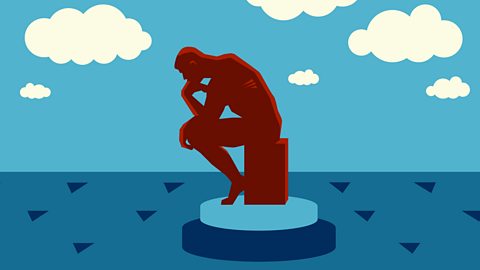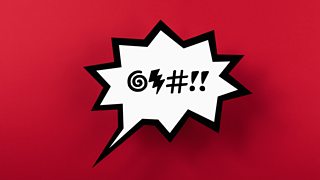Why forgiveness is good for you
Coming together with people at family events and times of celebration can have a reputation as a difficult time for quite a few of us. Arguments are very common as people get together, and for some it’s a reminder of more permanent rifts and relationships that aren’t all they might be.
We’ve taken some advice from contributors on how and why to include forgiveness as part of our festive traditions.

1. Forgiveness is not about being a doormat
Forgiveness can be seen as weak or letting people who’ve hurt you off the hook. Lucy Winkett works as a minister in the heart of London’s Picadillly - she says forgiveness is not about being nice or acting like a doormat.
‘Forgiveness in the Christian tradition is more of a process than an event and it’s rooted in the hard work of facing the past…When I embark on a process of trying to forgive you or forgive myself, I’m taking a deep breath and turning my face towards the past that I know I can’t change. It’s not weak, it’s strong.’
Hear Lucy Winkett talking about forgiveness
2. Forgiveness oils the wheels of your friendships
The writer Martin Wroe says ‘forgiveness is as mysterious as love or compassion - it won’t be forced and it isn’t compulsory’, but it can be something to think about applying to friendships where the hinges have got a bit rusty, a bit like oil, Martin says ‘it might stop the doors from falling off altogether’. He goes on to quote the poet David White ‘All friendships are based on a continuous mutual forgiveness.'

How can we learn to forgive ourselves?
Bishop Richard Holloway looks at how we can learn to live with no regrets.
-
![]()
Reflections from a faith perspective on issues and people in the news.
3. If you want good relationships, keep on forgiving
We often find it hardest to forgive the people we spend the most time with says Chetna Kang, a psychiatrist and a Hindu priest, but the little things that annoy us can turn into long held grudges and harbouring that resentment can destroy personal and professional relationships. Chetna’s guru advised her ‘Not forgiving is like walking around carrying a hot coal in your hands and waiting for a time when you can throw it at your offender. That time may or may not come but look how much harm you’ve done to your own hands in the meantime.

4. Today’s a good day for forgiving
Heedfulness is something that Vishvapani talks about. He’s a member of a Buddhist order and a mindfulness trainer. He explains that heedfulness means ‘taking care of our actions and carefully considering their likely consequences. Its means recalling everything that’s truly important requires steadfast effort. Knowing that our time is short means realising that it’s precious’ Vishvapani quotes the Buddha’s last words ‘Keep going, keep caring, keep practising – whether this is a day like any other or the last you will know.’
The truth is that the strength it takes to forgive other people is rooted in part to your willingness to forgive yourself.
5. Forgive yourself
Lucy Winkett thinks our ability to forgive others has a lot to do with learning to forgive ourselves for things in the past. She says ‘the events of this day, as every day, will bring with them a host of opportunities to practise our own courage and present us with decisions to forgive or not as we choose. Because the truth is that the strength it takes to forgive other people is rooted in part to our willingness to forgive ourselves’.
-
![]()
Reflections from a faith perspective on issues and people in the news.
-
![]()
Peace on earth and goodwill to all? 11 tips for keeping the peace.
-
![]()
Series in which five people discuss what forgiveness is, what it is not and how to practise it.
-
![]()
Neil MacGregor explores the role and expression of shared beliefs around the world.




